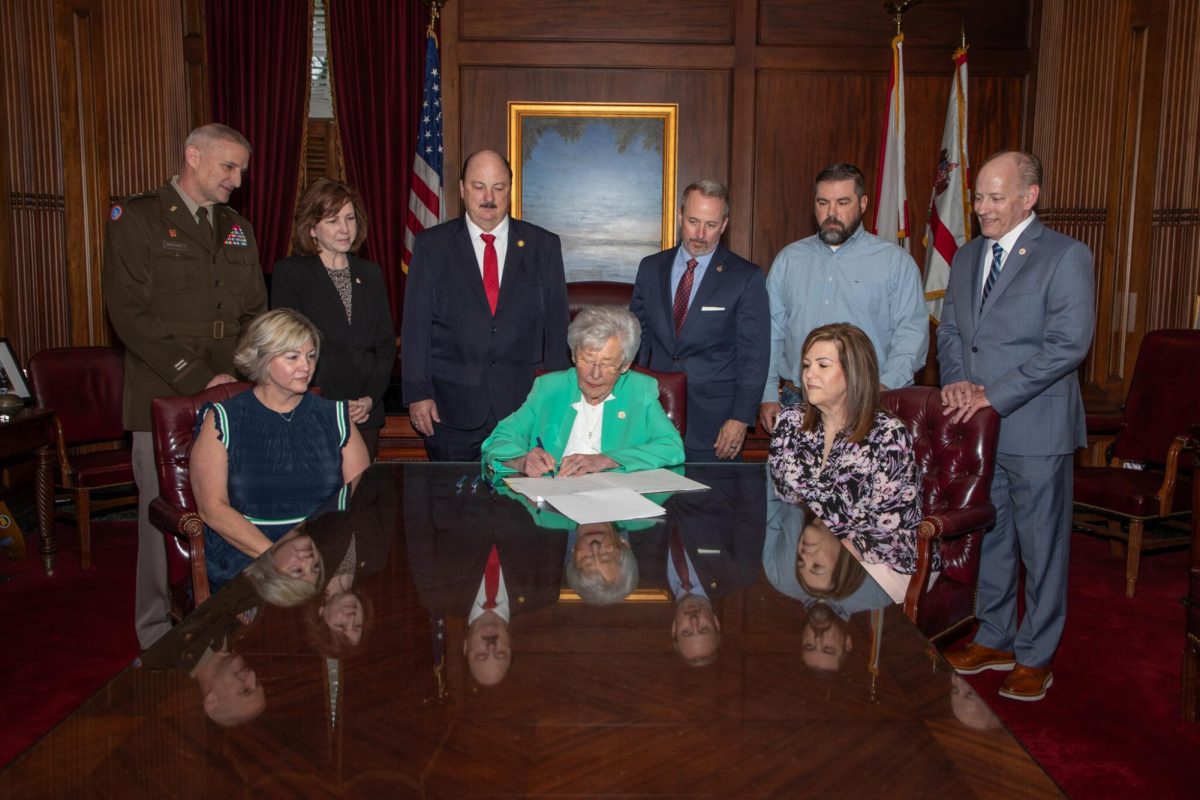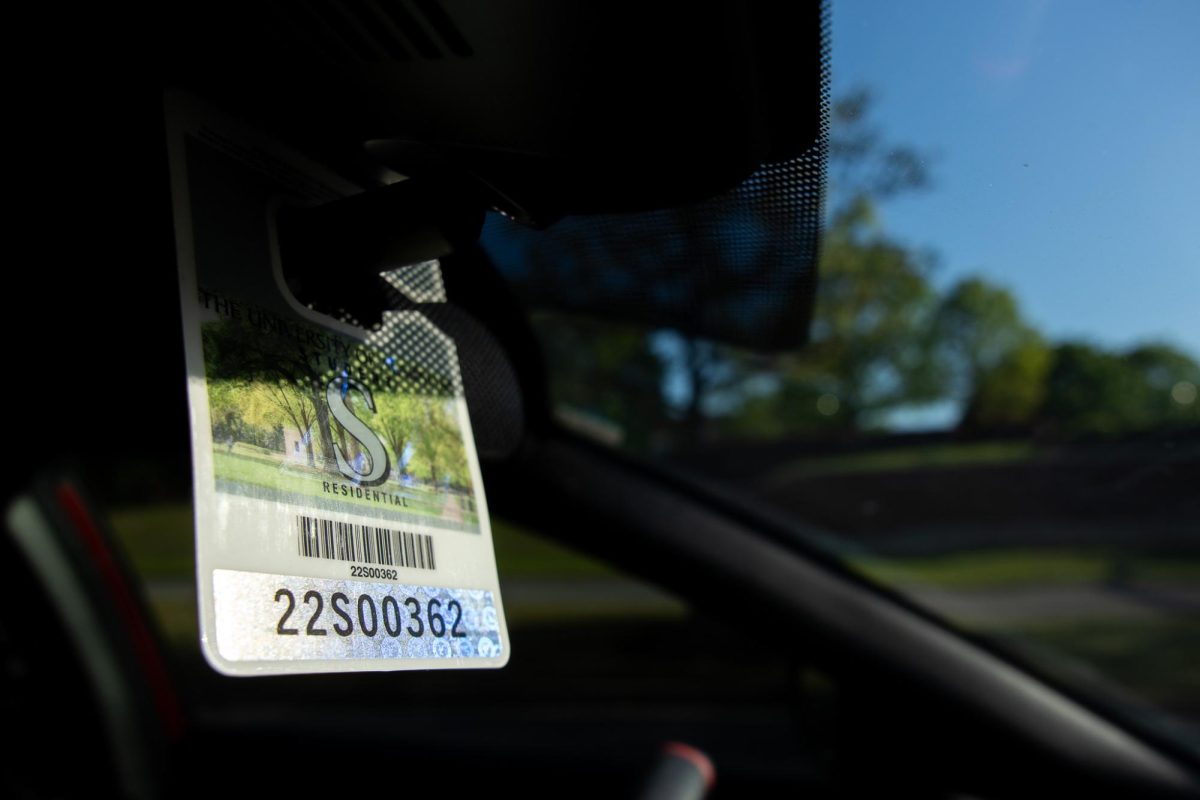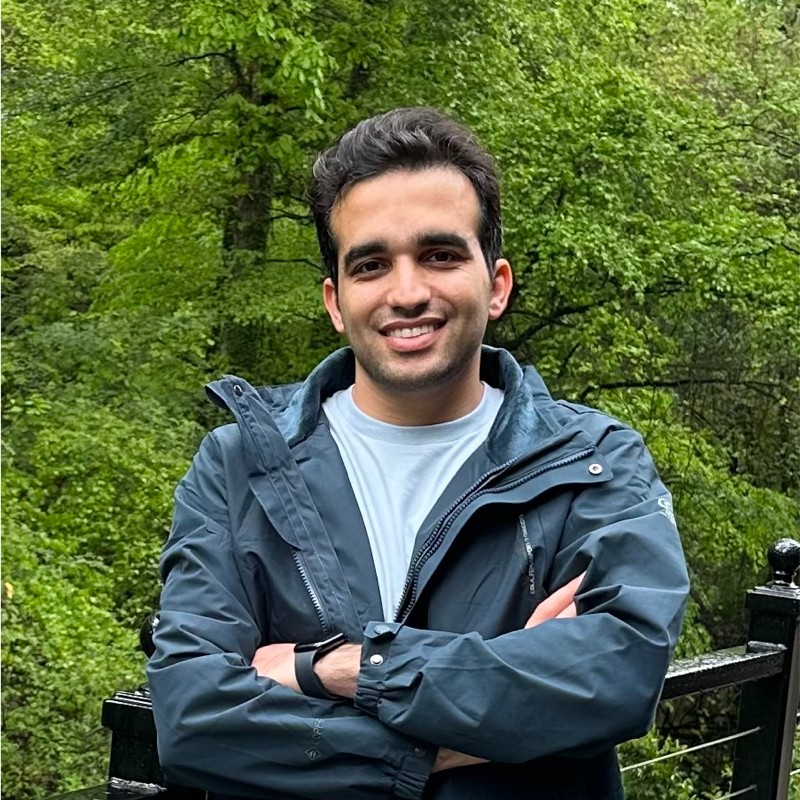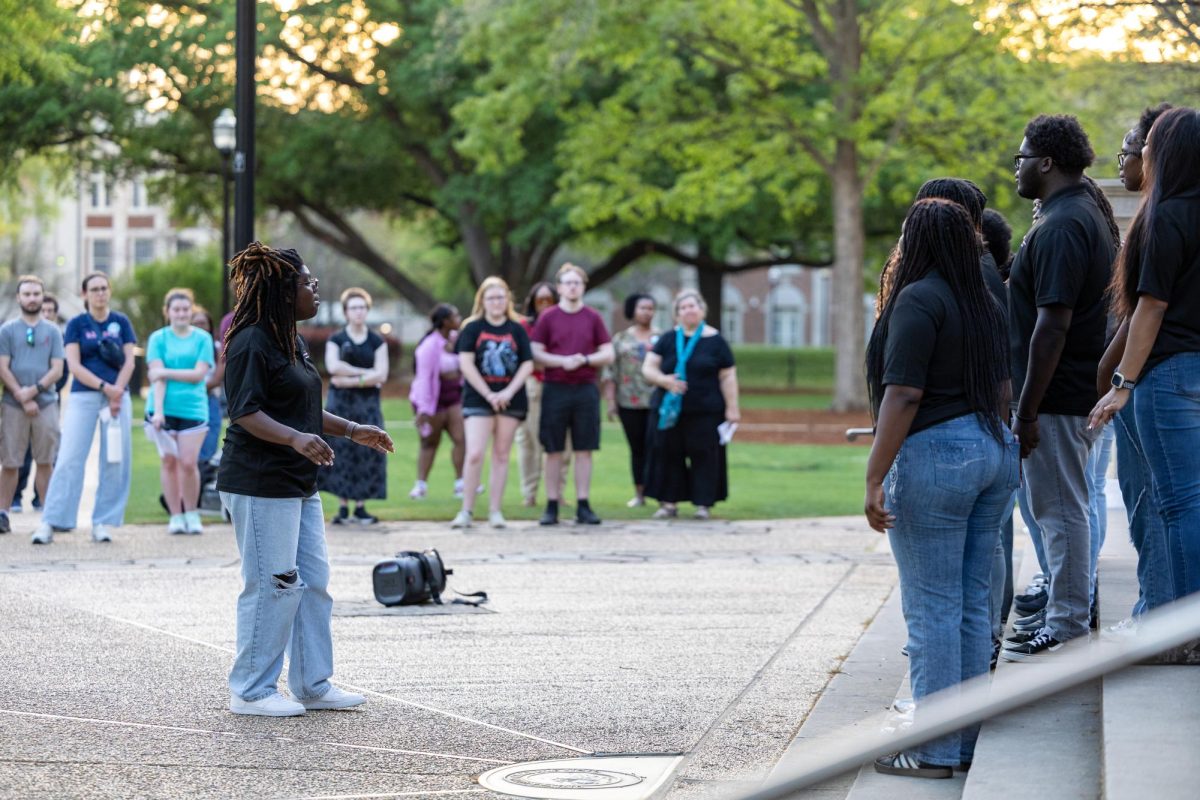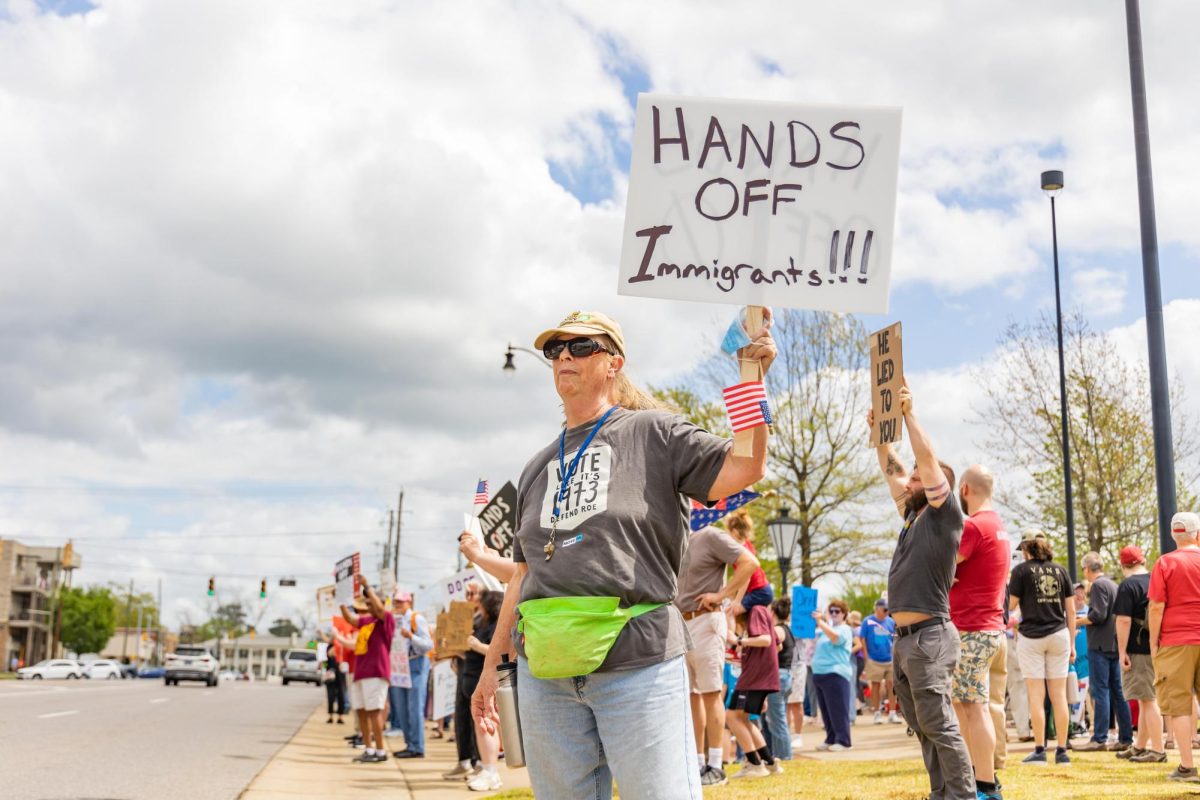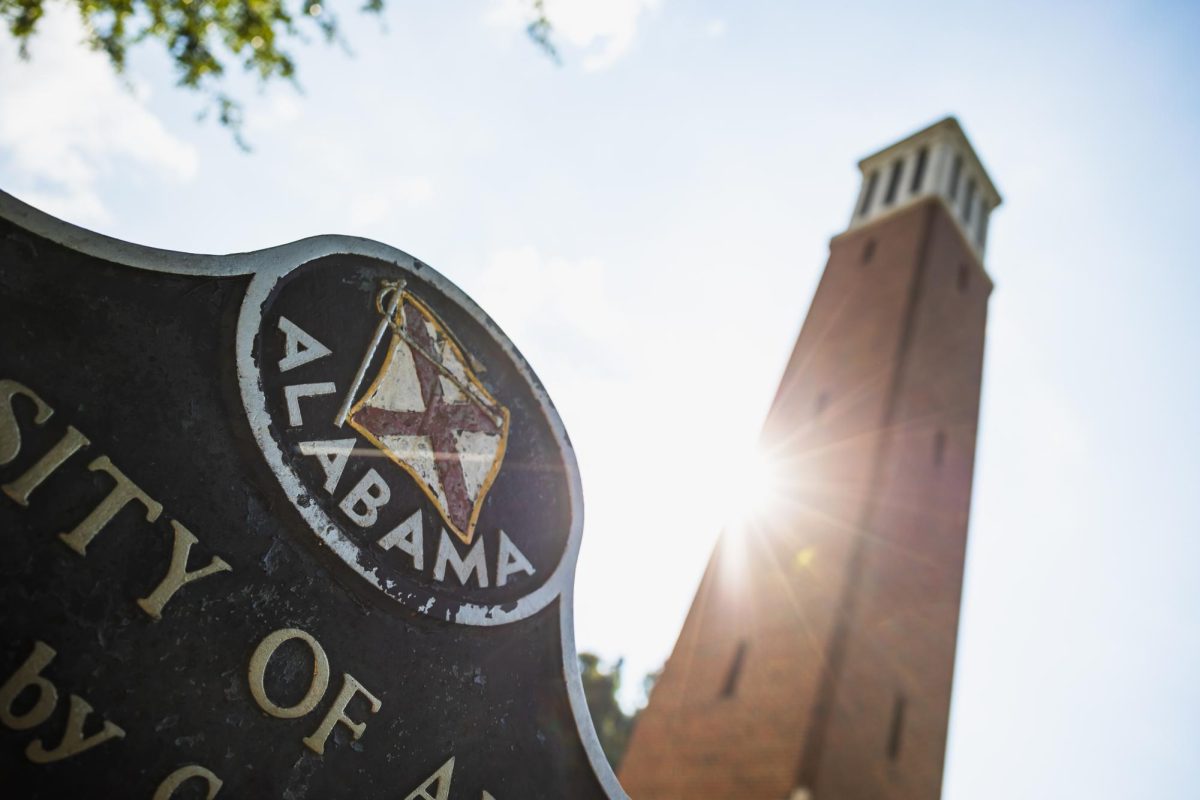If you are in crisis, help is available. Call or text 988 to speak with the Suicide and Crisis Lifeline. If you are a veteran in crisis, dial 988 and press 1 or text 838255 to speak with the Veterans Crisis Line.
Gov. Kay Ivey signed the Houston/Hunter Act, filed as Senate Bill 40, into law Monday. The namesakes of the bill are Houston Tumlin, an Army veteran, and Hunter Whitley, a UA student who served in the Marines, both of whom died by suicide using a firearm.
“Safety and security for veterans is one of my top priorities, just as they have protected and taken care of us,” Ivey said in a press release. “SB40 paves the way for Alabama to continue being the number one state for veteran care, quality of life and ensuring that veterans are equipped with the best mental health resources.”
Sponsored by state Sen. Keith Kelley and state Rep. Russell Bedsole, the law aims to reduce veteran suicides by creating a legal framework for Alabamians to temporarily store their firearms with federal firearms licensees in legally protected firearm hold agreements. Under the law, licensees will be shielded from potential legal liability for returning firearms at the end of the hold agreement.
The law will go into effect June 1.
“These agreements are confidential and temporary, ensuring that individuals retain their Second Amendment rights while taking proactive steps toward their safety,” Kelley said in a speech on the Senate floor Tuesday recognizing Tumlin’s and Whitley’s parents and other supporters of the act.
According to the 2024 National Veteran Suicide Prevention Annual Report, 17.6 veterans died by suicide per day nationally in 2022, and the suicide rate per 100,000 veterans is over twice as high as the rate for the non-veteran adult population. Veterans in that year were just over twice as likely as non-veterans to die by suicide. In Alabama, 118 veterans died by suicide in 2022.
The report said that 73.5% of veteran deaths by suicide in the U.S. were by firearms in 2022.
“Through this legislation, Alabama acknowledges the sacrifices of its veterans and commits to ensuring that they receive not only recognition but also the care and protection that they deserve,” Kelley said.
Jason Smith, Alabama National Guard resilience and risk reduction coordinator and suicide prevention program manager, helped create the bill in conjunction with helping start the SAFER Together initiative in February 2024. The initiative is creating a network of federal firearms licensees to store firearms temporarily in accordance with the act for high-risk veterans, members of the military and first responders.
Smith is working with gun shops in the network to onboard them before the law goes into effect in June.
“I have lost 7 of my Marine buddies to suicide and several to overdose. I hope this act can save a few and maybe change the way we look at our mental health, and also shed light on the myths and stigmas that prevent us from making change,” Smith said in an email statement.
Tumlin, who played Walker Bobby in the comedy film “Talladega Nights: The Ballad of Ricky Bobby,” served in the Army for over five years where he earned several medals, his mother said.
“He was made to be a soldier,” said Michelle Tumlin, Houston’s mother. “He loved it.”
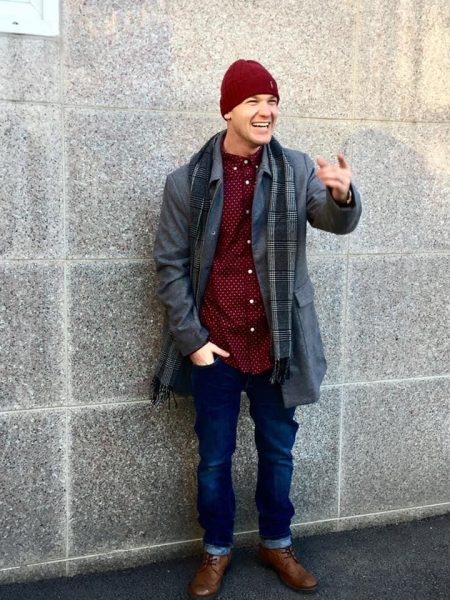
Since high school, Tumlin had experienced symptoms of chronic traumatic encephalopathy, a brain disease caused by repeated injuries to the head, including memory problems and trouble focusing, his mother said. He was diagnosed with the condition post-mortem.
While in service, he began suffering from PTSD and other CTE symptoms, including depression, mood swings and debilitating headaches. His mother said he was honorably discharged due to his mental health and physical injuries, but his headaches and mental health only worsened prior to his death in March 2021.
“If Houston would have been able to go lock his gun up when he was feeling some kind of way, I think he could possibly still be alive,” she said, adding that she initially supported the bill because if it could save at least one life, “it would be worth it.”
Whitley, whom family described as caring and having many passions like art and music, joined the Marines in 2018, fulfilling a lifelong dream. He served for four years, including during the Afghanistan evacuation, returning to Alabama to attend classes during the fall semester in 2022 before his sudden death in November of that year.
In Whitley’s case, the Department of Veterans Affairs Office of Inspector General, which provides independent oversight of VA, found that Whitley received inadequate mental health care at the VA Tuscaloosa Healthcare System before his death. One of the mistakes noted was that a staff member failed to work with him to restrict his access to a firearm he reported having.
“It is an honor to have his name on the act, because mental health was very important to Hunter,” McDaniel said, adding that he and many of his friends struggled with the Afghanistan deployment. “If this had been available for him, it may have been something that could have saved his life.”
McDaniel and Tumlin have both started nonprofits in their sons’ names that serve veterans: the Hunter Whitley Butterfly Initiative and Houston Project, respectively. They said they hope this legislation is the beginning of more changes that benefit veterans.



